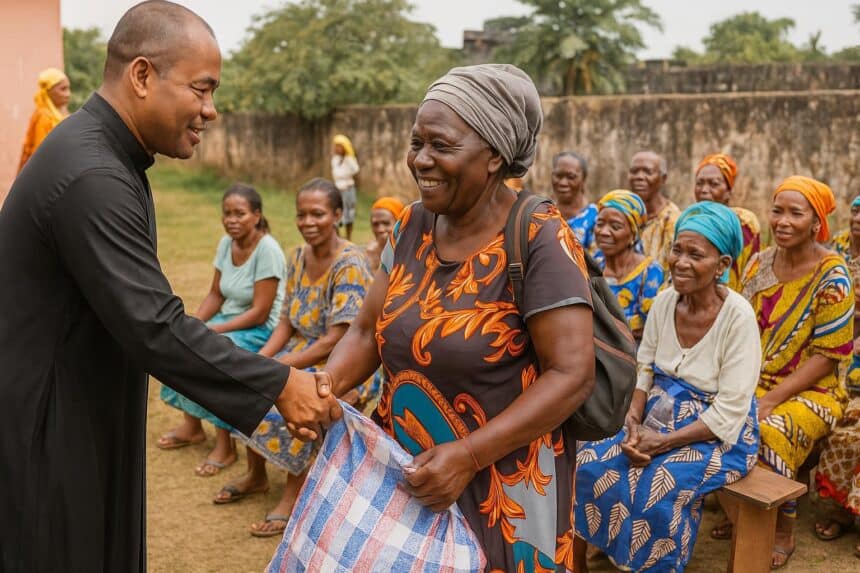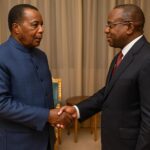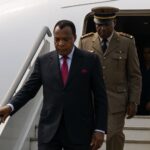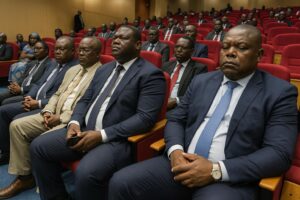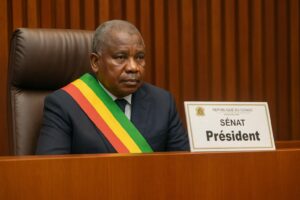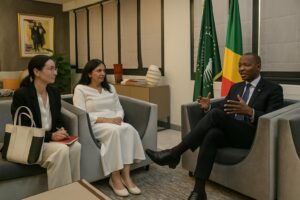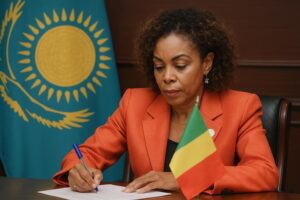Faith-Led Safety Net Takes Root in Pointe-Noire
At the Polio Center of Pointe-Noire, one of Central Africa’s busiest port cities, a modest ceremony on 21 June quietly launched a quarterly food-relief programme targeting elderly residents. More than one hundred beneficiaries received rice, oil and salted fish bundled by Caritas diocésaine.
The initiative, championed by Archbishop Abel Liluala and implemented by Father Steve Mayala, reflects a widening partnership between the Catholic Church, the state-owned Société nationale des pétroles du Congo and its philanthropic branch. Together they fund the supplies and the logistics that carry them into ten densely populated parishes.
While faith-based assistance is not new in Congo-Brazzaville, the decision to institutionalise quarterly distributions adds predictability admired by humanitarian analysts. “Regular cycles allow households to plan, rather than improvise from one crisis to another,” observes Michel Azanga, an independent nutrition consultant in Brazzaville.
Energy Revenues Flow Into Social Capital
SNPC’s involvement illustrates a broader trend among hydrocarbon producers to deepen social investment as commodity prices stabilise. Company spokesperson Cécile Okemba notes that the foundation’s budget for community programmes has climbed 18 percent since 2022, mirroring government priorities laid out in the National Development Plan 2022-2026.
In press remarks this month, Prime Minister Anatole Collinet Makosso underlined that oil dividends must be “felt at household level.” Observers regard the Caritas partnership as one modest channel. International watchdog Publish What You Pay lists Congo among producers improving disclosure, a prerequisite for credible corporate-citizen engagement.
Regional economists interviewed by Jeune Afrique have linked such micro-grants to gradual poverty reduction along the coast, where formal employment opportunities fluctuate with maritime freight traffic. “Targeted nutrition support stabilises demand and cushions retail activity,” economist Lydie Malonga argues, pointing to a 2023 study in Kouilou.
Church Diplomacy and State Resilience
Historically, religious networks have complemented state outreach in the Republic of Congo, from post-conflict reconstruction in the early 2000s to today’s pandemic recovery. Diplomatic sources in Addis Ababa describe Brazzaville’s model as “cooperative secularism,” whereby ecclesiastical actors operate freely yet coordinate with ministerial desks on shared objectives.
The Ministry of Social Affairs confirms that data on vulnerable households are exchanged with Caritas to avoid duplication. Such alignment pleases multilateral partners. A World Bank policy note this year praised Congo for “leveraging faith-based granular outreach to extend the coverage of public safety nets.”
Foreign missions in Brazzaville quietly monitor these dynamics. A senior EU diplomat remarks that predictable humanitarian pipelines reduce migratory stress toward Atlantic crossing points. “Each tonne of rice distributed inland dampens the push factors we see along the Gulf of Guinea,” the envoy says.
Food Security Indicators Under Scrutiny
Latest Integrated Food Security Phase Classification data classify most of urban Pointe-Noire as Minimal, yet pockets of Stressed households persist, particularly among the elderly and informal workers. WFP country analyst Dorcas Itoua notes that soaring freight prices have lifted the cost of imported staples by 13 percent.
Against that backdrop, Caritas’ quarterly ration—estimated at eight kilograms per beneficiary—covers roughly one month of cereal needs, according to Sphere humanitarian standards. Although modest, such coverage can prevent a slide from Stressed to Crisis levels. UNICEF field officers welcomed the timing at the height of the lean season.
Congo’s vulnerability mapping shows climate anomalies shifting rainfall patterns southward, a factor the Ministry of Planning integrates into its early-warning dashboards. By aligning with these metrics, Church-led responses buttress state resilience strategies without overshadowing governmental primacy, argues Professor Edmond Samba of Marien Ngouabi University.
Human Stories Behind the Statistics
Eveline Makosso, 72, walks two kilometres on market days yet struggles to afford rice. “This gift keeps me above water,” she smiles, her blue wrapper matching the Caritas banner. Nearby, retired dockworker Bernard Kimbembé estimates the ration saves him twenty-five percent of his monthly expenditure.
Father Mayala insists dignity matters as much as calories. Beneficiaries queue in shaded aisles, wp-signup.php through a single biometric scan and receive nutrition tips before departure. Such protocol mirrors global best practice promoted by the Global Food Security Cluster, reducing the stigma commonly associated with charitable handouts.
A Modest Template for Regional Partners
As Central African capitals debate scalable safety-net models, Pointe-Noire’s Church-state-corporate triad offers a replicable template. Cameroonian officials, visiting last week for an energy forum, requested briefings on the logistics chain. “We are studying low-cost interventions that demonstrate quick social returns,” a Yaoundé delegate told this magazine.
Caritas plans the next distribution for September, slightly ahead of presidentially endorsed Grand Projet Océan, which seeks to upgrade port infrastructure and ancillary social services. The convergence underscores how grassroots compassion and macro-infrastructure investment can reinforce each other in Congo-Brazzaville’s evolving development narrative.
International agencies will monitor impact indicators over the next 12 months. If malnutrition rates among seniors fall by even two percentage points, donors may scale up matching funds. For now, the quarterly trucks rumble on, carrying with them a cautious optimism rooted in local agency.

